But who are those who decide??
Who is this small group??
DO YOU CARE ? DO YOU HAVE ANY QUESTIONS ??
Don't we still choose our elected official ??
Questions.. questions .. Please google Question mark www.google.com
Selecting the next UN Secretary-General: Security Council holds first round of secret poll on candidates
21 July 2016 – Following its first-ever private discussions with the candidates vying for selection as the next United Nations Secretary-General, the UN Security Council today conducted the first round of informal polls on those seeking the world’s top diplomatic post.
The current Secretary-General, Ban Ki-moon, is the eighth occupant of the Organization's 70-year history. He took office in January 2007 and will be ending his 10-year tenure on 31 December 2016. Under the UN Charter, the Organization’s top official is appointed by the General Assembly on the recommendation of the Council.
Speaking to reporters at the UN Headquarters this morning, Ambassador Koro Bessho of Japan, which holds the Council’s presidency for July, confirmed that the first round of the so called ‘straw polls’ had taken place, and each candidate would be informed of the results through his or her country’s permanent representative to the UN. He also noted that he had informed that the President of the UN General Assembly that the vote had taken place.
He said that the straw poll is “an indicative vote – to inform the candidates where they stand in the race, and to inform the Council members how the race might go from here.”
The straw poll followed a series of closed-door meetings in which each of the 12 official candidates, who have been nominated by their governments, was introduced to the Council members. Yesterday, Mr. Bessho said this is the first time the Council had held such informal meetings with each of the candidates for the next UN chief.
The Council met three candidates in June and the rest in July. He has said that the results of the polls would not be made public. “We would like to make sure that the fairness and confidentiality of voting is respected,” he said.
As for the date for the second round of the poll, he said no decision has been made. There is no definitive deadline for announcing candidacy, but anyone considering throwing the hat in the ring should come forward as soon as possible so that the Council and the Assembly have a good amount of time to review the candidate, he added.
At its first session in 1946, the Assembly approved resolution A/RES/1/11 determining that the Council take the lead in the selection process, agree on a single name in a private meeting, and pass that name down to the Assembly for a vote. Since 1946, the Council has done just that, discussing and voting behind closed doors in straw polls for members to ‘encourage’ or ‘discourage’ a candidate to continue.
This process has come to be known as the ‘Wisnumurti Guidelines,’ named after Ambassador Nugroho Wisnumurti of Indonesia who held the rotating presidency of the Council in November 1996 when the guidelines were set. These straw polls continue until there is a majority candidate without a single veto from a permanent member of the Council.
That name is then officially transferred to the Assembly, whose membership historically chooses the candidate. This year, the Assembly took a more active role in the selection process, aiming to make it more transparent and inclusive. For the first time in history, the candidates were asked to submit their resumes and to take part in informal briefings with the Assembly.
Along with the informal hearings, the UN last Tuesday held its first-ever globally televised and webcast townhall-style debate in the General Assembly Hall, where 10 of the 12 confirmed candidates took questions from diplomats and the public at large.
The two candidates unable to come to New York were invited to send video messages to be used in the event. Asked how the Assembly’s open dialogues with the candidates would affect voting decisions by Council members, Mr. Bessho, speaking in his national capacity, has explained that the candidates’ performances in the Assembly’s debates, as well as in the Council’s informal meetings, would be “reflected” in his recommendation to his Government.
In addition to the five permanent Council members – China, France, Russia, the United Kingdom, and the United States – 10 non-permanent seats are currently held by Angola, Egypt, Japan, Malaysia, New Zealand, Senegal, Spain, Ukraine, Uruguay, and Venezuela. Later in the day, General Assembly President Mogens Lykketoft issued a letter to all UN Member States and Observers in which he recognized the informal nature of the straw poll and took note that the outcome of this and future informal straw polls will not be communicated, but stressed that in his view, limiting the communication to the fact that the informal straw poll has taken place without any further detail “adds little value and does not live up to the expectations of the membership and the new standard of openness and transparency.”
In light of this, he said that future communications from his Office that informal straw polls have taken place would be conveyed via announcements on his web page as soon as they are received from the President of the Security Council.
News Tracker: past stories on this issue
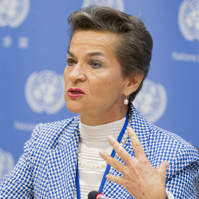 UN Photo/Rick Bajornas
UN Photo/Rick Bajornas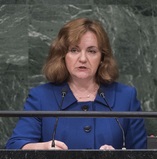 UN Photo/Amanda Voisard
UN Photo/Amanda Voisard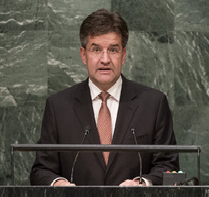 UN Photo/Kim Haughton
UN Photo/Kim Haughton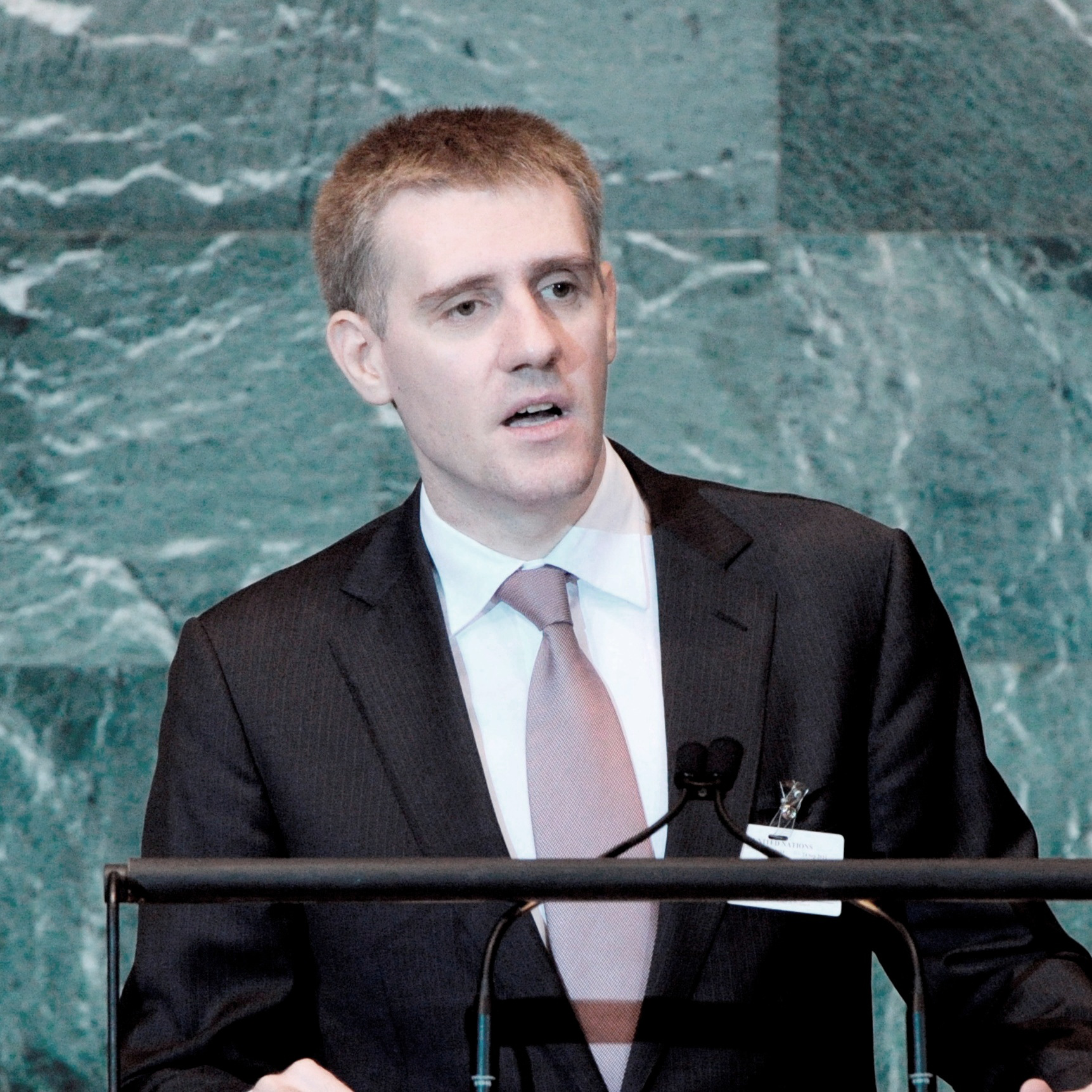 UN Photo/Evan Schneider
UN Photo/Evan Schneider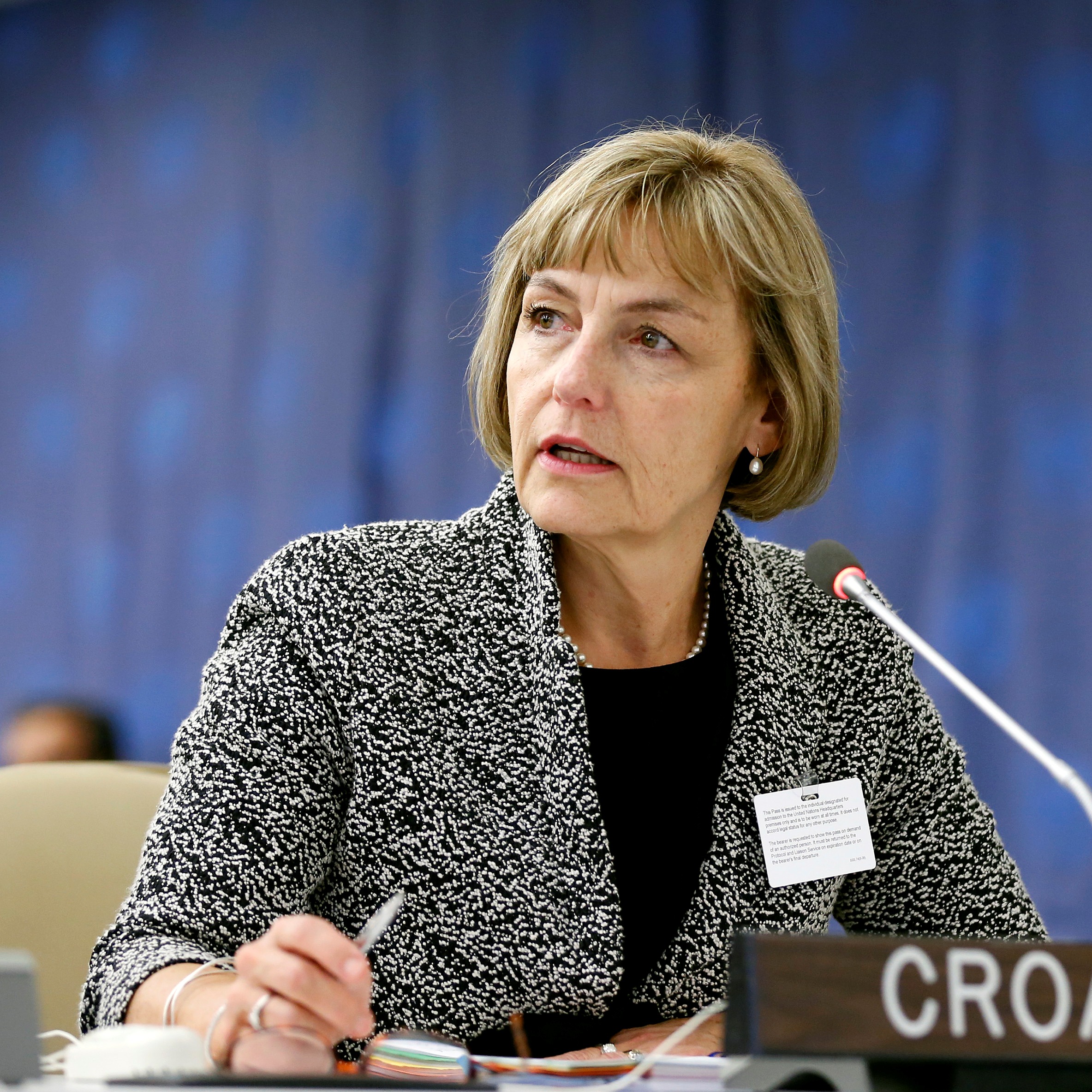 UN Photo/Rick Bajornas
UN Photo/Rick Bajornas

